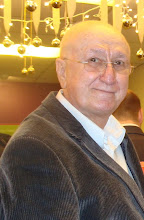July 2002
I was in agony. My legs had been cramped in the confined space of the Airbus 310 for over six hours. The seats were barely wide enough to sit in and lowering the food tray was an exercise in confinement. Over ten years of research into my family’s earliest roots had brought me here, and while the search had sometimes been frustrating, this was the first time it was proving physically painful.
On top of it all, Scotland was flirting with us. The captain had announced the plane was on its final descent and we had plunged eagerly into the cloud cover. Ignoring layers of physical discomfort, I was wondering what it would feel like to walk the fields and enter the homes where my ancestors had lived. Would there be a sense of coming home? A feeling of recognition, of belonging?
Of course, at that moment, I would settle for a simple release from the confinement of my seat. But we emerged from the cloud cover to find ourselves above still another layer of cloud. Scotland was not eager to reveal herself.
The plane descended through successive veils of cloud until the very moment before we landed at Glasgow Airport, when orderly fields of lush green suddenly stretched below us. Then the runway appeared and we were down, if not on Scottish soil, at least on Scottish tarmac.
I had spent ten years slowly and painstakingly unraveling the mystery that was my father. A mystery I hadn't even known existed until my wife began her own genealogical research and I suddenly realized I knew nothing about my father's family. I hadn't known that coming to understand the forces that had created my father would be the key to freeing me from bonds I didn't even know were strangling me.
My dad was not secretive and certainly was no monster. He was a warm and open man who lived completely in the now and never regaled us with tales of his past. He wasn't hiding his past from us, it just wasn't the place where he lived. He didn't think it mattered.
What I could have learned in a couple of hours of conversation while he was alive, had taken me months in libraries, Mormon Church Family Research Centers, cemeteries, on-line genealogy sites and visits with strange and unnerving relatives to piece together.
What I had found had blown me away and changed completely almost everything I thought I knew about him. For most of my life I had just assumed we had different personalities and that was why we weren't especially close. What I didn't realize then was that much of my personality had grown in opposition to his, had been determined by his, was bound to his. It wasn't just by shear chance that we were different. But I knew better now and what I'd learned about him had allowed me to change the very way I viewed myself.
Here are some of the major differences between us:
He smoked. I didn't.
He drank, sometimes to excess. I didn't.
He was profoundly religious. I wasn't.
He was passionately patriotic. I'm not.
He always worked steadily but changed jobs regularly. I've worked for the same company for 30 years.
He was maudlinly sentimental. I'm not.
He had a grade 4 education and could barely read a newspaper. I have a Masters degree.
He loved country music, especially the weepy songs. It made me cringe.
He was the life of a party and loved to throw lavish events where he was the center of attention. I was much happier off to the side in quiet conversation pretending I didn't know him.
When I was a child he never played with us. I always played with my children.
When I was a child he never taught us how to fix anything or do any home repair. I involved my daughters in everything I did.
His main recreation was watching TV. I'm deeply involved with my community.
I was embarrassed by him. He was proud of me.
Before we began researching our family histories it never occurred to me to ask, what made him that way? Like a force of nature, I assumed that fathers just sprang into existence, fully formed and unchanging. Discovering there were forces that had shaped him, was life altering.
My wife had noticed something about me. "Doing this research has changed you," she said as we deplane at Glasgow Airport. "It's made you a better person."
Little did we know what Scotland herself had to reveal in the coming days ahead.
2026 Project 365 – Week Four
2 hours ago



